Description
Introducing the book scarcity: much so means little too having why
Costs have always been a big issue in human life. Probably from the very beginning of civilization, humans have been trying to find solutions to manage their costs. But for modern man, this issue is more obvious.
The way of life has changed and many luxuries have entered human life that have made it difficult to manage expenses. The costs we are talking about can be both material costs and things like time that are very effective in today’s human life, where the variety of concerns is greatly increased. Poverty Stupidity is a fascinating and practical book that examines the issue of “scarcity” or “scarcity” and gives a new perspective to the reader.
About the book Poverty is stupid; Take a different look at the problems
This book tries to show the impact of scarcity (famine) in human life on the two issues of money and time, and of course to provide solutions to these situations for people.
The book Poverty Stupid quickly found its place among readers. This book has gone beyond the United States and has been translated into several languages over the years.

Poverty is stupid, why was it written?
“We wrote this book because we did not have time to write it.”
The story of writing the book, according to the authors, begins with Sandhill Molineton’s many troubles. The troubles that seriously prevented him from fulfilling his obligations and made him completely difficult in managing his time and plans.
Among the programs was an offer to write a chapter in a book about the lives of low-income Americans. The case study in this chapter was a man who had many financial obligations and was not able to manage his income and expenses.
Schaefer and Mollyten have many similarities between the office manager they wrote about and Mollyten realized and tried to find common ground that would explain the situation for both of them and provide effective solutions. They believed that what the two had in common was the “effects of scarcity” and decided to answer an important question: “Can a comprehensive logic be provided for scarcity?” “Does it make sense to maintain its effectiveness in these various contexts?”
Finally, to answer this question, they wrote the book Poverty Stupid.
An overview of the chapters in the book Poverty Stupid
The book begins with an introduction that begins with the authors’ motivation for writing about stupid poverty. In the continuation of this introduction, the authors explained the methods they used to get the answers to their questions. They designed experiments to evaluate the effect of scarcity and examined the results.
They go on to talk about a concept called the science of basic scarcity. “When we told one of our economist colleagues about scarcity, he replied, ‘Scarcity has existed before.’ You may have heard his name. “It’s called economics.”
Following this detailed introduction, which prepares the reader’s mind thoroughly for the contents of the book, The Stupid Poverty Book is written in three main sections:
Part One: The Rare Mindset
The second part: scarcity brings scarcity
Part 3: Design for scarcity
After the main sections of the book, there is a part of the footnote, in which additional explanations are given about many of the contents of the text of the book, and sources and references are given for many of the contents of the text. There is also a glossary and index at the end of the book that can play an important and fundamental role in clarifying the concepts of the book for the reader.
About the authors; From an economist named Moulinein to a psychologist named Shaffer
Sandhill Mollyten is an Indian scientist and professor of economics. Mollyten was born in 1973 in Tamil Nadu, India. He completed his undergraduate studies at Cornell and Harvard Universities. Molinenet has extensive activities and studies in areas such as behavioral economics, development economics and corporate economics. He lives in Cambridge, Massachusetts and teaches economics at Harvard University.
Dr. Molineton has won the MacArthur Scholarship.
Aldar Schaefer is an American psychologist and behavioral scientist. He has extensive studies and research in areas such as cognitive science, behavioral economics, and judgment and decision-making, and is an expert in these areas of psychology.
Schaefer began his college education at Brown University in Rhode Island and eventually received his Ph.D. from the Massachusetts Institute of Technology (MIT). Aldar Schaefer teaches psychology and public relations at Todd and Princeton Universities and is a member of Harvard University’s School of Social Sciences.
Dr. Aldar Schaefer has won the Guggenheim Scholarship.
Criticism of the book Poverty is stupid
The book Poverty Stupid is a book that has been able to attract a lot of comments and become an effective book, especially for people who have a lot of worries. There have been various reviews of this book, and many great economists have commented on it. “The book’s comprehensive theory of the deficit mentality is very new in its kind,” the Economist said of the book. The New York Times’ Cass Santstein also called the book “brilliant.”
A number of critics also see stupid poverty as influential in politics. “Reading this book is a must for all politicians around the world,” said Tim Adams, a critic of the Guardian.
Poverty Stupid, like many other books, has had its critics. For example, Tim Harford of the Financial Times described the book as “unbalanced.” “What is fun at first about this book, and talking about compelling experiments, is long, repetitive and confusing,” he said. “The final chapters of the book offer interesting suggestions on policy-making, management and self-help, but most of these suggestions are immature and inefficient.”
Poverty makes fools; Published in Persian
The book Poverty Stupid Makes It was first published in 1997 in Iran under the title “Deficiency: A Look at Individual and Social Deficiencies”. This translation was done by “Hossein Alijani” and published by Phoenix Publishing.
Seyyed Amir Hossein Miraboutalebi, the young translator of our country, has also translated this book into Persian for the humanities translator.
In a part of the book Poverty Stupid, we read:
Think for a moment about how interesting this is. According to the basic principles of accounting, there is definitely a trade-off. No matter how rich you are, the money you have is limited. If you spend $ 10 on one thing, $ 10 less will be left on something else (even if that other thing is an inheritance you leave for your child). After all, that $ 10 has to come from somewhere. But people usually do not feel that way. Most of us have a laid back attitude when it comes to painting a picture about ourselves.
We do not need to sacrifice another purchase to make this purchase. We might even say that we feel we have an unlimited supply of $ 10 bills in our budget. Of course, in the end we know that this is not the case, but this is how we behave.
However, sometimes we do notice trade-offs. Imagine that you are on a diet and you are again in a position to choose that drink. Although the $ 10 price may not make you think of giving up, the “calorie price” will. Those three hundred extra calories have to be calculated.
Drinking that drink means losing something else. Is it worth skipping dessert for a drink? Or from a donut tomorrow morning? Our diet turns us into calorie accountants. Accounts must be cleared. In this situation, we understand well that having one thing is equal to not having another. In fact, we engage in what we call the give-and-take thinking.
It is clear that those ten dollars for those who are financially constrained is like three hundred calories for a person who is a regime: this amount should also be calculated. In the suitcase metaphor, having a small suitcase meant that importing one thing equals leaving another.
1- Introducing the book scarcity: much so means little too having why on YouTube
2- Introducing the book scarcity: much so means little too having why in Aparat

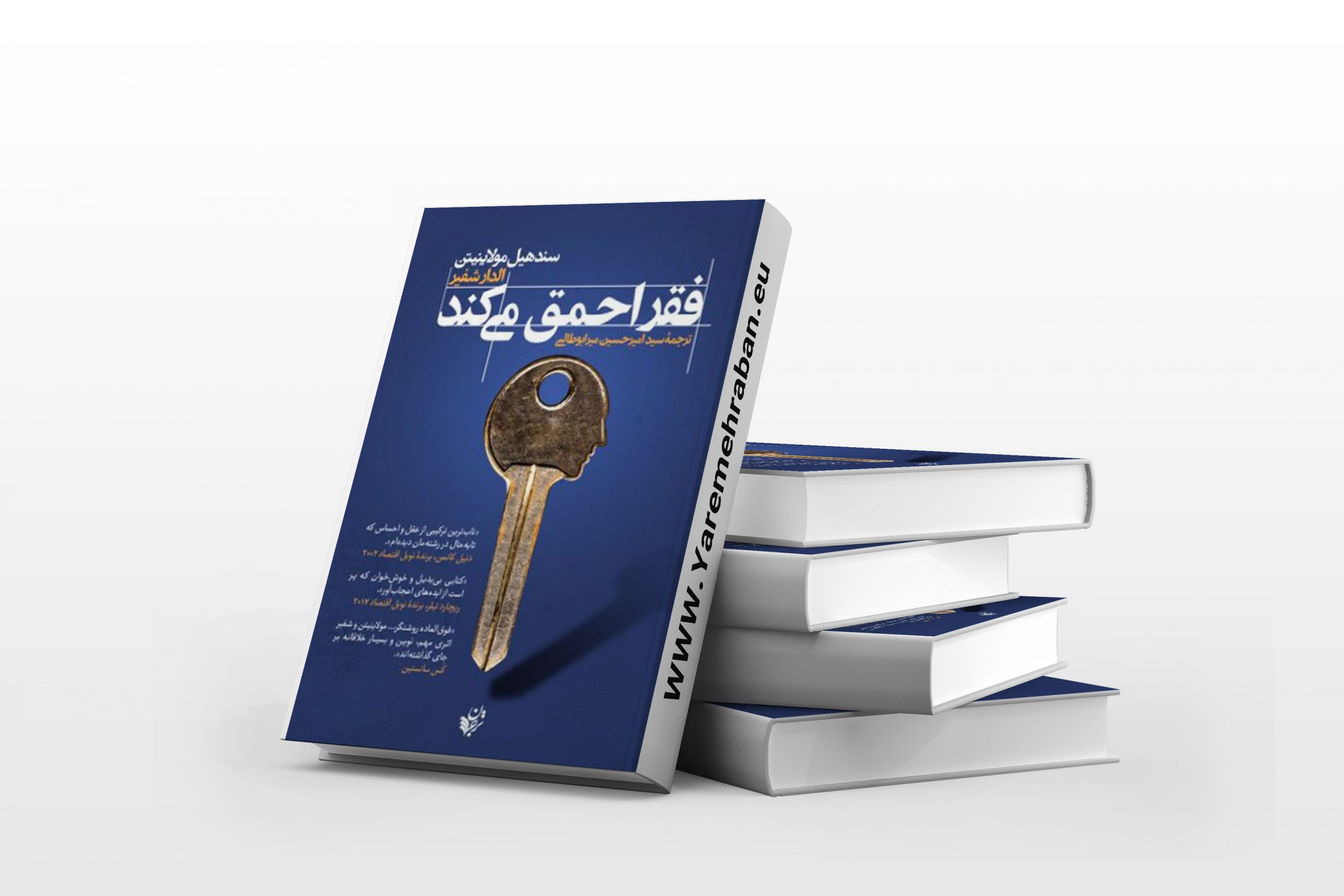

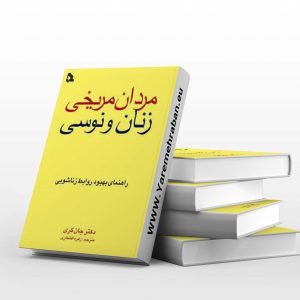




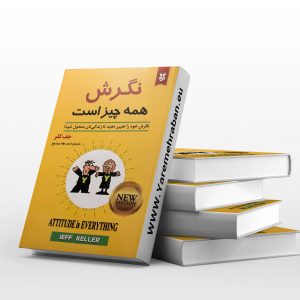

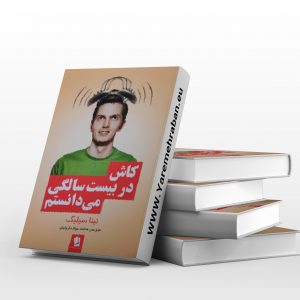


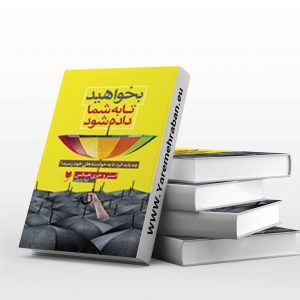
Reviews
There are no reviews yet.